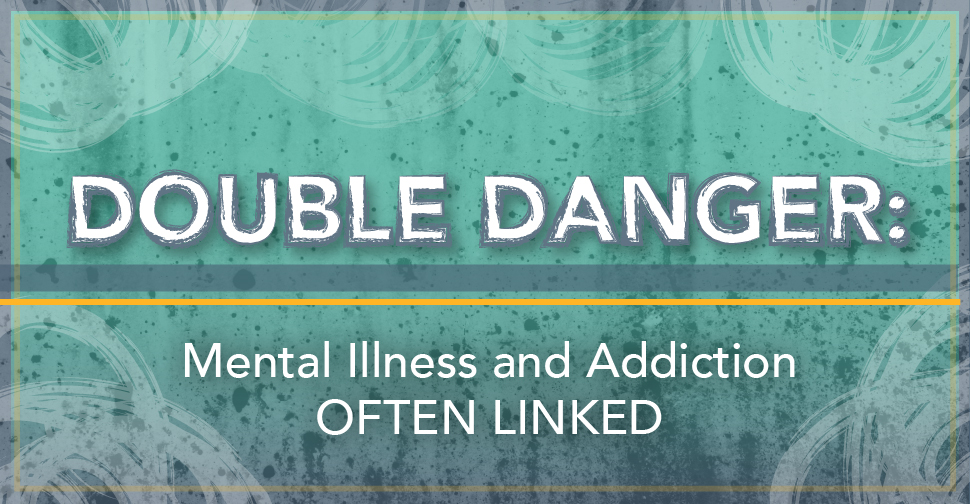Every day, millions of Americans grapple with a menacing combination: mental illness that co-exists with drug or alcohol addiction.
The challenge of a “dual diagnosis” is quite common, affecting an estimated 8.9 million adults who have both a mental and substance use disorder, according to the Substance Abuse and Mental Health Services Administration (SAMHSA).
People with serious psychiatric illness — such as schizophrenia or bipolar disorder with psychotic characteristics — are especially vulnerable to addiction.
“Substance use is dramatically higher in people with severe mental illness than in the general population,” says Dr. Sarah Hartz, Assistant Professor of Psychiatry at Washington University School of Medicine in St. Louis.
Hartz led the largest study to date of substance use among people with psychotic illness (“Comorbidity of Severe Psychotic Disorders With Measures of Substance Use,” published in JAMA Psychiatry, March 2014).
Using multi-ethnic samples, the study measured drug and alcohol use among 9,142 people with severe mental illness — those with a diagnosis of schizophrenia, schizoaffective disorder or bipolar disorder with psychotic features. The results were compared to substance use among 10,195 members of the general population who did not have these disorders.
Compared with the general population, people with severe mental illness were:
- 4 times more likely to engage in heavy alcohol use (defined as having more than four drinks per day)
- 3.5 times more likely to engage in heavy marijuana use (defined as using marijuana more than 21 times per year)
- 4.6 times more likely to engage in other recreational drugs, especially cigarette smoking
No Protection against Addiction
An alarming conclusion from the study is the lack of protective factors for people with severe mental illness. For example, while public health campaigns have helped deter smoking in the general population, they were not effective for those with psychotic disorders. And while women generally have lower rates of substance use than men, these differences were not apparent among people who were mentally ill.
Regardless of race, sex or ethnicity, those with severe psychiatric illness had highly elevated risks for smoking, alcohol and drug use.
“Our research showed that protective factors that help decrease rates of substance use in the general population don’t seem to extend to people with severe mental illness,” Hartz says.
A Challenging Cycle of Illness
Experts say multiple forces aggravate addiction in the mentally ill. A person with schizophrenia or bipolar disorder may self-medicate with drugs, for example, to escape painful symptoms.
“The relationships between severe mood disorder and substance use problems certainly go in both directions — with people using substances to blunt severe symptoms, and those substances making symptoms worse in the long run,” says Dr. Gregory Simon, a psychiatrist/researcher at Group Health in Seattle and chair of the Scientific Advisory Board for the Depression and Bipolar Support Alliance (DBSA).
Simon says the overlap between mental illness and addiction is sometimes neglected. “So it’s essential for those who try to help people with mood disorders (both professionals and peers) to pay attention to substance use problems. And vice versa.”
Hartz notes there may be genetic vulnerabilities that predispose people to both substance use disorders and severe mental illness. She also sees a lack of treatment intensity for those with co-occurring addiction and psychiatric issues.
“I think people with severe mental illness are marginalized and health care providers don’t work as hard to prevent and treat substance use disorders in these people,” Hartz says. Studies have shown that many doctors and psychiatrists don’t talk about the dangers of substance use disorders with their patients who have severe mental illness. And yet, Hartz notes, “there are studies that show that treatment for substance use disorders is as effective in people with severe mental illness as in the general population.”
“As healthcare providers, we need to make sure that people with severe mental illness are given the same opportunities for treatment and prevention of substance use disorders as we give the rest of our society.”
Recovery from Dual Diagnosis:
Finding the Right Help
If you’re battling a dual diagnosis — or love someone who is — experts say it’s important to find integrated care. That is, look for a treatment program that will thoroughly address both the psychiatric illness and the drug or alcohol addiction.
Today, many progressive rehab facilities offer dual diagnosis programs with a board-certified psychiatrist and master’s level therapists on staff. These multi-disciplinary programs typically include psychotherapy services, medication management, evidence-based techniques such as Cognitive Behavioral Therapy (CBT) or Dialectical Behavior Therapy (DBT), peer support groups, family programs, specialized therapeutic groups (i.e., opioid addiction, GLBT support) and integrative therapies such as acupuncture or Eye Movement Desensitization and Reprocessing (EMDR), a form of trauma treatment.
Effective programs skillfully coordinate care, in one setting, to meet the complex needs of someone with both addiction and mental illness. Individual and group counseling may be modified based on the patient’s cognitive deficits, vulnerabilities or level of social support needed. A successful program delivers interventions at different stages of recovery and has a solid relapse prevention plan — since higher rates of relapse are associated with dual diagnosis.
Here are some additional resources for understanding dual diagnosis and starting the recovery process:
Dual Diagnosis Education:
These websites offer in-depth information on co-occurring addiction and mental health disorders. Includes webinars and special topics (i.e., Co-Occurring in the Military):
- http://media.samhsa.gov/co-occurring/
- http://www.drugabuse.gov/publications/comorbidity-addiction-other-mental-illnesses/why-do-drug-use-disorders-often-co-occur-other-mental-illnesses
Support Groups:
Also, support groups such as Dual Recovery Anonymous and Dual Diagnosis Anonymous may have meetings in your state (but do not have national websites); check with a therapist, social worker or meetup.com to find options near you.
Drugrehab.org
 Free, confidential referrals to treatment programs nationwide; counselors available 24/7.
Free, confidential referrals to treatment programs nationwide; counselors available 24/7.
Drugrehab.org includes free guides to choosing the right rehab, and supporting a family member with addiction; also available is a library of articles on recovery and healing.


